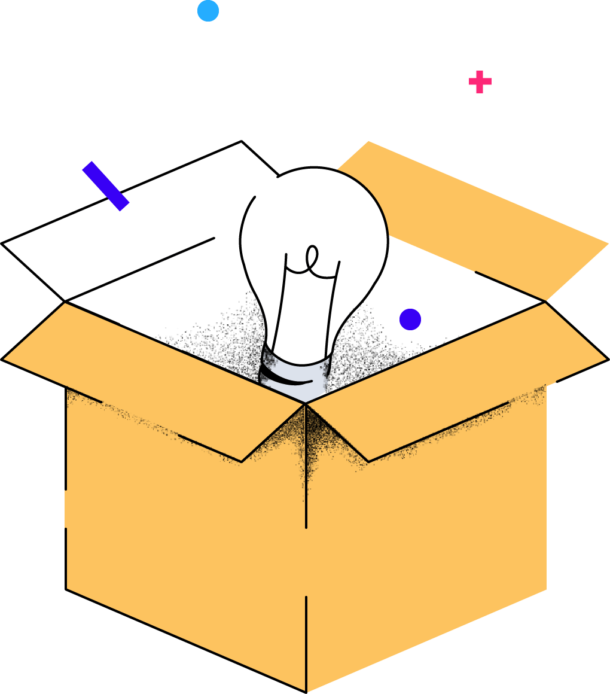Table of Contents
Introduction
Why Continuous Learning is Essential
Utilizing a Template to Capture and Organize New Concepts
The Significance of Continuous Learning in Career Development
How to Embrace the Continuous Learning Process
Conclusion
Introduction
In today’s rapidly evolving world, staying ahead requires more than just initial education or training. The concept of the continuous learning process has become a cornerstone for both personal and professional development. Continuous learning is about constantly expanding your knowledge, skills, and abilities throughout your life. It’s a proactive approach to learning that helps individuals adapt to new challenges, technologies, and innovations that emerge in various fields.
The continuous learning process involves a mindset that embraces curiosity, flexibility, and a commitment to growth. Unlike traditional learning, which often occurs in formal settings with a defined end, continuous learning is an ongoing journey. It’s about recognizing that learning doesn’t stop once you’ve obtained a degree or certification; instead, it’s a lifelong process that evolves with your experiences, interests, and career demands.
Understanding and implementing the continuous learning process is crucial in today’s competitive landscape. Those who commit to continuous learning are more likely to remain relevant in their careers, adapt to industry changes, and ultimately, achieve greater success.
Why Continuous Learning is Essential
The question “Why is continuous learning essential?” is more relevant now than ever. In an era marked by rapid technological advancements and shifting job markets, continuous learning has become a necessity rather than an option. Continuous learning significance lies in its ability to help individuals stay current with industry trends, acquire new skills, and maintain a competitive edge in their careers.
One of the primary reasons why continuous learning is essential is that it allows individuals to adapt to changes in their professional environment. As industries evolve, new technologies and methodologies emerge, making certain skills obsolete while elevating the importance of others. Those who engage in continuous learning are better equipped to navigate these changes, ensuring that their skills remain relevant and in demand.
Moreover, continuous learning fosters a growth mindset, which is essential for personal and professional development. A growth mindset encourages individuals to view challenges as opportunities for learning rather than obstacles. This perspective not only enhances problem-solving abilities but also increases resilience in the face of setbacks. By committing to the continuous learning process, individuals cultivate a mindset that is open to new ideas, willing to take risks, and eager to improve.
Utilizing a Template to Capture and Organize New Concepts
As part of the continuous learning process, effectively capturing and organizing new ideas and concepts is vital. When engaging in continuous learning, whether through reading, attending workshops, or consuming other educational content, it’s easy to come across valuable insights that could enhance your personal or professional development. However, without a structured system for organizing these ideas, important concepts can be forgotten or overlooked.
This is where a simple yet powerful template can come into play. Our specially designed template allows users to capture new ideas or concepts quickly and efficiently. By providing a structured format, this template helps individuals record key insights and categorize them for easy reference later. It’s particularly useful for those who are committed to continuous learning, as it ensures that valuable information isn’t lost in the shuffle of daily tasks.
The template is a tool that complements your learning journey by offering an easy-to-use framework for documenting ideas, whether they’re related to career development, personal growth, or new skills. You can download it here Download the Template to integrate it into your continuous learning routine. This way, every new concept you come across will be readily accessible when you need it most, making your learning process more efficient and organized.

By integrating this template into your routine, you enhance your ability to recall and apply new ideas, making the continuous learning process more impactful and manageable. This template helps to improve idea clarity, allowing you to break down complex concepts into manageable parts and categorize them based on relevance or application.
The Significance of Continuous Learning in Career Development
The significance of continuous learning in career development cannot be overstated. In the modern workforce, where job roles are constantly evolving, continuous learning is a critical factor in achieving long-term career success. Employers increasingly seek professionals who are not only skilled but also committed to ongoing development. Engaging in the continuous learning process demonstrates a dedication to personal growth and a willingness to adapt to new challenges.
One significant aspect of continuous learning in career development is its role in career advancement. By continuously updating your skills and knowledge, you position yourself as a valuable asset to your organization. This can lead to new opportunities, such as promotions, leadership roles, or even career changes. Continuous learning enables professionals to take control of their career trajectory, ensuring they remain competitive and capable of seizing new opportunities as they arise.
Another important reason why continuous learning is significant in career development is that it builds confidence. As individuals acquire new skills and knowledge, they become more confident in their abilities, which can translate to better job performance and greater job satisfaction. Confidence gained through continuous learning also empowers individuals to take on new challenges, seek out leadership roles, and pursue career goals with greater determination.
Furthermore, the continuous learning process helps professionals stay relevant in their field. With industries constantly evolving, staying current with the latest trends and technologies is crucial for maintaining employability. Continuous learning allows professionals to keep their skills sharp and up-to-date, ensuring that they remain valuable contributors to their organizations and can adapt to the demands of the modern workplace.
How to Embrace the Continuous Learning Process
Embracing the continuous learning process involves more than just attending workshops or taking courses; it requires a commitment to lifelong learning and a proactive approach to self-improvement. Here are some strategies to effectively embrace the continuous learning process:
- Set Clear Learning Goals: Start by identifying the areas where you want to grow, whether it’s acquiring new skills, deepening your knowledge in a specific field, or exploring new interests. Setting clear, achievable learning goals provides direction and motivation, making it easier to stay focused and committed to the learning process.
- Leverage Online Learning Platforms: The rise of online education has made it easier than ever to access high-quality learning resources. Platforms like Coursera, Udemy, and LinkedIn Learning offer a wide range of courses that cater to various interests and skill levels. By taking advantage of these platforms, you can engage in continuous learning at your own pace and on your own schedule.
- Cultivate a Learning Mindset: A learning mindset is essential for embracing the continuous learning process. This involves staying curious, open to new ideas, and willing to step out of your comfort zone. By adopting a learning mindset, you’ll be more likely to seek out new experiences, ask questions, and embrace challenges as opportunities for growth.
- Join Professional Networks and Communities: Engaging with others in your field can provide valuable insights and learning opportunities. Professional networks, online forums, and industry groups are excellent places to share knowledge, discuss trends, and learn from the experiences of others. These communities can also offer support and motivation as you navigate your continuous learning journey.
- Reflect on Your Learning: Taking time to reflect on what you’ve learned is a crucial part of the continuous learning process. Reflection helps solidify new knowledge, identify areas for further improvement, and make connections between different concepts. Regularly reviewing your progress and considering how new insights can be applied to your personal and professional life will enhance the overall effectiveness of your learning efforts.
By integrating these strategies into your routine, you can fully embrace the continuous learning process, ensuring that you remain adaptable, knowledgeable, and prepared for the challenges and opportunities that lie ahead.
Conclusion
The continuous learning process is not just a buzzword; it’s a critical component of personal and professional growth in today’s fast-paced world. Understanding the significance of continuous learning and actively engaging in it can lead to numerous benefits, including career advancement, increased confidence, and enhanced creativity. By setting clear goals, leveraging learning resources, cultivating a growth mindset, and reflecting on your progress, you can make continuous learning a natural part of your life.
Ultimately, the continuous learning process empowers individuals to remain relevant, competitive, and successful in their careers. In an ever-changing world, those who commit to continuous learning will be better equipped to navigate new challenges, seize opportunities, and achieve their full potential.





0 Comments